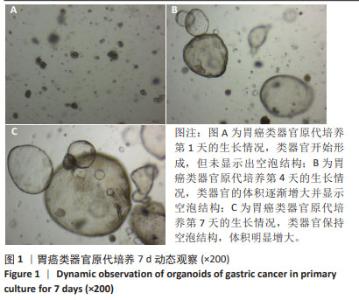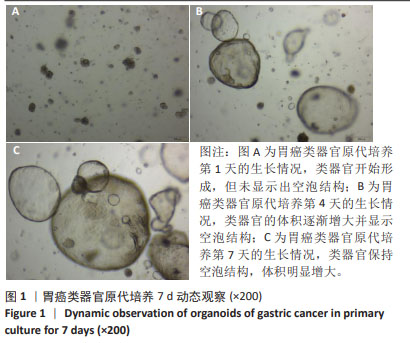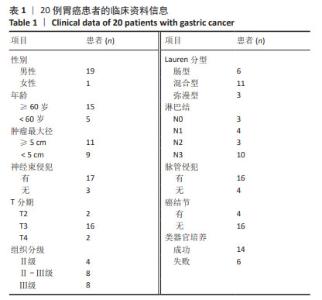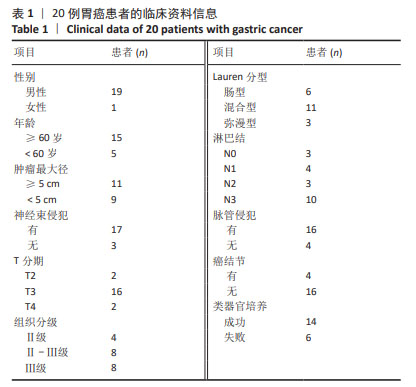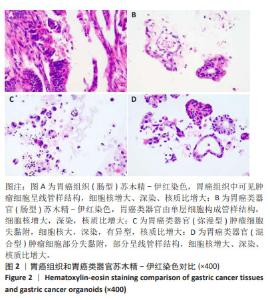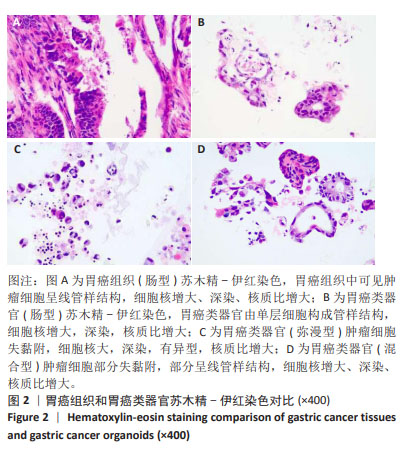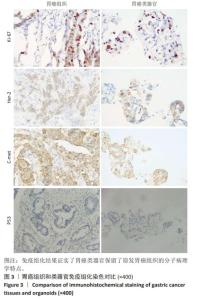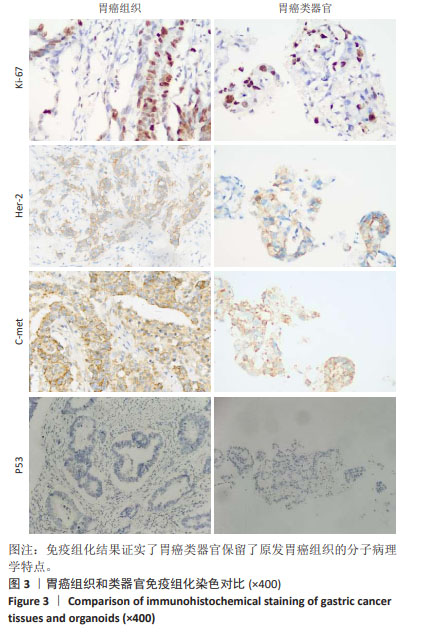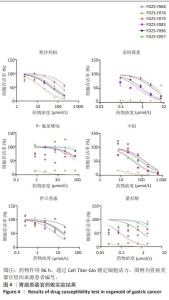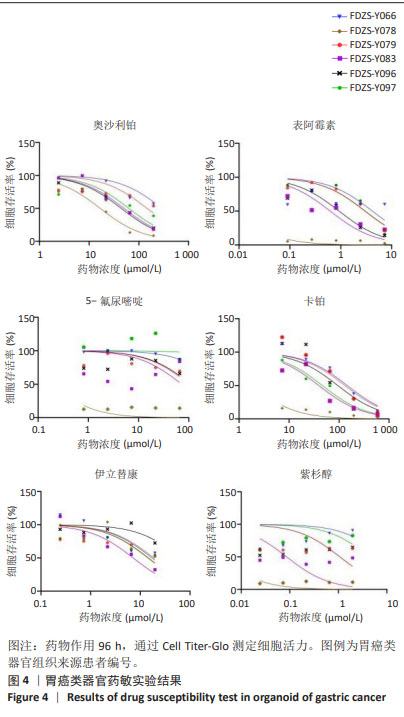[1] THRIFT AP, WENKER TN, EL-SERAG HB. Global burden of gastric cancer: epidemiological trends, risk factors, screening and prevention. Nat Rev Clin Oncol. 2023;20(5):338-349.
[2] GAO H, KORN JM, FERRETTI S, et al. High-throughput screening using patient-derived tumor xenografts to predict clinical trial drug response. Nat Med. 2015;21(11):1318-1325.
[3] BLEIJS M, VAN DE WETERING M, CLEVERS H, et al. Xenograft and organoid model systems in cancer research. EMBO J. 2019;38(15): e101654.
[4] KREPLER C, SPROESSER K, BRAFFORD P, et al. A Comprehensive Patient-Derived Xenograft Collection Representing the Heterogeneity of Melanoma. Cell Rep. 2017;21(7):1953-1967.
[5] QIAN X, SONG H, MING GL. Brain organoids: advances, applications and challenges. Development. 2019;146(8):dev166074.
[6] LESAVAGE BL, SUHAR RA, BROGUIERE N, et al. Next-generation cancer organoids. Nat Mater. 2022;21(2):143-159.
[7] MCQUERRY JA, CHANG JT, BOWTELL DDL, et al. Mechanisms and clinical implications of tumor heterogeneity and convergence on recurrent phenotypes. J Mol Med (Berl). 2017;95(11):1167-1178.
[8] ZHAI Z, YU X, YANG B, et al. Colorectal cancer heterogeneity and targeted therapy: Clinical implications, challenges and solutions for treatment resistance. Semin Cell Dev Biol. 2017;64:107-115.
[9] CRUCITTA S, CUCCHIARA F, MATHIJSSEN R, et al. Treatment-driven tumour heterogeneity and drug resistance: Lessons from solid tumours. Cancer Treat Rev. 2022;104:102340.
[10] TUTTY MA, HOLMES S, PRINA-MELLO A. Cancer Cell Culture: The Basics and Two-Dimensional Cultures. Methods Mol Biol. 2023;2645:3-40.
[11] HABANJAR O, DIAB-ASSAF M, CALDEFIE-CHEZET F, et al. 3D Cell Culture Systems: Tumor Application, Advantages, and Disadvantages. Int J Mol Sci. 2021;22(22):12200.
[12] TAKAHASHI T. Organoids for Drug Discovery and Personalized Medicine. Annu Rev Pharmacol Toxicol. 2019;59:447-462.
[13] UKAI S, HONMA R, SAKAMOTO N, et al. Molecular biological analysis of 5-FU-resistant gastric cancer organoids; KHDRBS3 contributes to the attainment of features of cancer stem cell. Oncogene. 2020; 39(50):7265-7278.
[14] 曾云丽,王穗东,李怡然,等.1231例结直肠癌类器官培养成功率的影响因素分析[J].中华胃肠外科杂志,2023,26(8):780-786.
[15] ZU M, HAO X, NING J, et al. Patient-derived organoid culture of gastric cancer for disease modeling and drug sensitivity testing. Biomed Pharmacother. 2023;163:114751.
[16] WATANABE S, YOGO A, OTSUBO T, et al. Establishment of patient-derived organoids and a characterization-based drug discovery platform for treatment of pancreatic cancer. BMC Cancer. 2022;22(1):489.
[17] NUCIFORO S, FOFANA I, MATTER MS, et al. Organoid Models of Human Liver Cancers Derived from Tumor Needle Biopsies. Cell Rep. 2018;24(5):1363-1376.
[18] YANG H, CHENG J, ZHUANG H, et al. Pharmacogenomic profiling of intra-tumor heterogeneity using a large organoid biobank of liver cancer. Cancer Cell. 2024;42(4):535-551.e8.
[19] KIM M, MUN H, SUNG CO, et al. Patient-derived lung cancer organoids as in vitro cancer models for therapeutic screening. Nat Commun. 2019;10(1):3991.
[20] SEINO T, KAWASAKI S, SHIMOKAWA M, et al. Human Pancreatic Tumor Organoids Reveal Loss of Stem Cell Niche Factor Dependence during Disease Progression. Cell Stem Cell. 2018;22(3):454-467.e6.
[21] SCHMÄCHE T, FOHGRUB J, KLIMOVA A, et al. Stratifying esophago-gastric cancer treatment using a patient-derived organoid-based threshold. Mol Cancer. 2024;23(1):10.
[22] 胡蕾,陈伟,张世维,等.胃癌恶性腹水来源类器官培养与药物敏感性筛查[J].消化肿瘤杂志(电子版),2022,14(1):32-41.
[23] LI J, XU H, ZHANG L, et al. Malignant ascites-derived organoid (MADO) cultures for gastric cancer in vitro modelling and drug screening. J Cancer Res Clin Oncol. 2019;145(11):2637-2647.
[24] 吴铭,初新宇,付阳,等.乳腺癌类器官疾病模型的构建及其对化疗药物的敏感性试验[J].实用医学杂志,2023,39(12):1480-1486.
[25] HUO C, ZHANG X, GU Y, et al. Organoids: Construction and Application in Gastric Cancer. Biomolecules. 2023;13(5):875.
[26] XU H, JIAO D, LIU A, et al. Tumor organoids: applications in cancer modeling and potentials in precision medicine. J Hematol Oncol. 2022;15(1):58.
[27] VENINGA V, VOEST EE. Tumor organoids: Opportunities and challenges to guide precision medicine. Cancer Cell. 2021;39(9):1190-1201.
[28] POORNIMA K, FRANCIS AP, HODA M, et al. Implications of Three-Dimensional Cell Culture in Cancer Therapeutic Research. Front Oncol. 2022;12:891673. |
